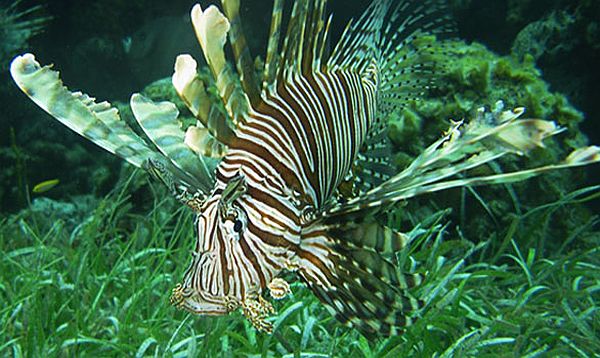San Jose, Costa Rica - The Ministry of Environment and Energy said that Costa Rica will begin fighting lionfish with the support of Mexican experts to help outline action plans.
The lionfish, native to the Indian Ocean and Western Pacific, is a predatory species that feeds on fish, lobsters, and other crustaceans and are severely impacting the coral reefs and the biodiversity of places like Cahuita and Manzanillo in the South Caribbean. They arrived in the South Atlantic in 1985, most likely released by private aquarium owners, and have caused native fish populations there to decline - which is hurting area fishermen.
"We do not intend to eradicate the lionfish; that is not possible or feasible from an economic, environmental, or social standpoint. What we will do is control it and return our ecosystem to a balance," said the Minister of Environment and Energy, René Castro.
Fishery authorities claim that workers in the Caribbean have reported a reduction in their catches of lobster, shrimp, crabs, and some fish, between 80 percent and 87 percent.
 |
With this data, Costa Rica is now seeking strategies to work with Mexican experts of the Regional Lionfish Committee for the Caribbean and the Commission of Natural Protected Areas of Mexico.
The Costa Rican government, scientists, fishermen, and nongovernmental organizations are all involved in the efforts to halt the disruption to native fish communities caused by this highly invasive species. The undertaking includes: developing a monitoring system, researching the specimen, the strengthening of legislation, and controling the reproduction of lionfish.
It is estimated that each year Lionfish reproduce at a rate of between 1.5 and 2.5 million eggs per fish.
According to Minister Castro, it is also important that people get involved in efforts to fight this battle because this invasive species "has commercial value and we must learn how to market it."
Fishermen have extracted specimens up to 30 inches long and weighing 5.5 pounds. Lionfish fillets have reached an estimated selling price of up to $8 per pound.
Original Story


